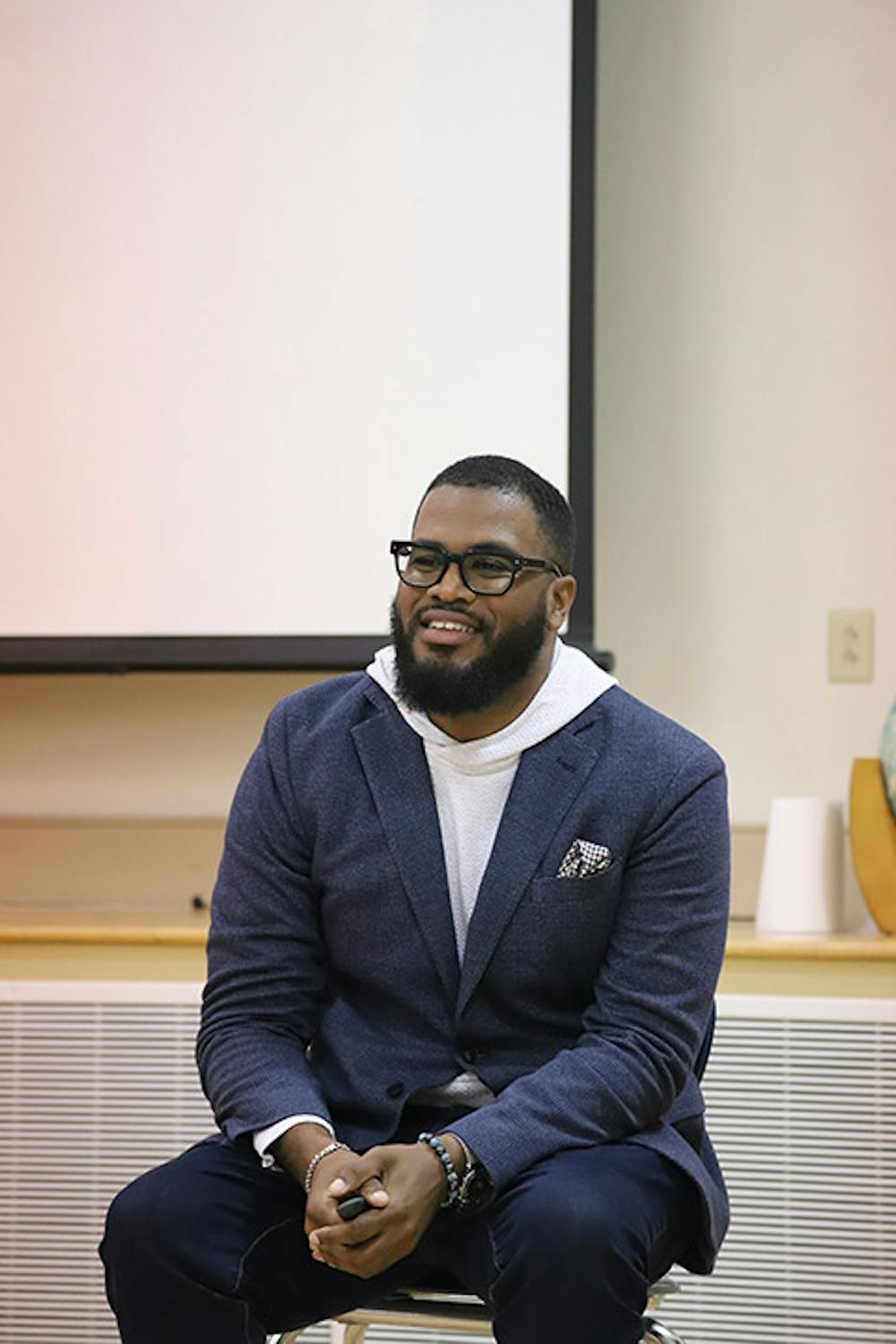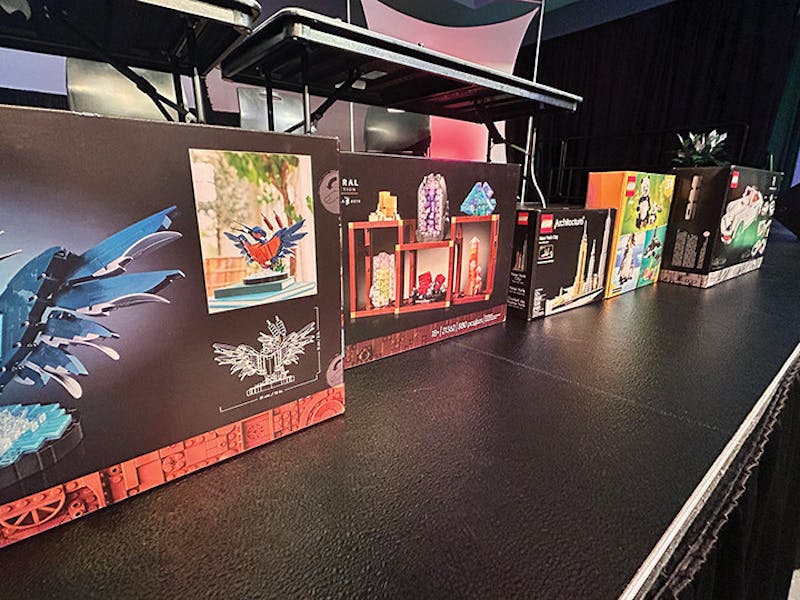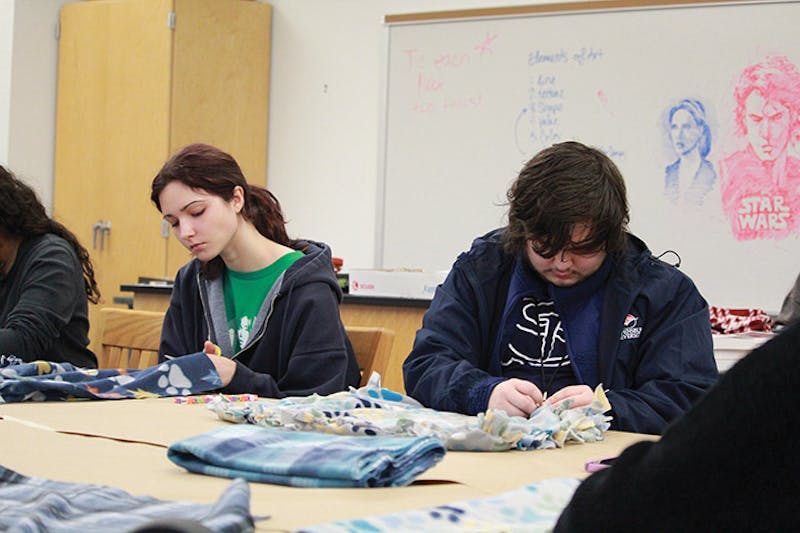Music – everyone listens to it. In fact, about 90 percent of the population does; but how many listen to the lyrics and the issues that artists speak out on?
This was the topic of “It’s Still Bigger than Hip-Hop: Communicating Social Issues,” a presentation held by Jeremy C. McCool, an associate professor at West Chester University of Pennsylvania.
Students gathered in Rowland Hall Thursday night to listen to McCool discuss socially conscious rap and the social issues the genre captures, such as poverty, racism, war and others. So, what exactly is socially conscious rap?
McCool described it as a subgenre of hip-hop where artists convey societal issues in the world through stories, testimonials and perspectives. Artists such as Lil Wayne, Kendrick Lamar, J. Cole and Tupac Shakur are popular examples of the genre.
Throughout the event, students listened to several examples of socially conscious rap, from Gil Scott-Heron to J. Cole.
One of these examples included “Georgia Bush” by Lil Wayne. This song, released in 2006, dealt heavily with Hurricane Katrina, the aftermath and the late evacuation order from the government.
Not many people choose to listen to the messaging in these songs. In a 2021 study exploring racial bias on socially conscious music, conducted by McCool, it was found that the white participants rejected the messaging of the songs they listened to during the study at a significantly higher rate than the Black participants.
At the end of the event, McCool encouraged students to amplify artists who speak to social issues they find important and to embrace messaging that tells stories outside of their own.
“Hearing the struggles that other people face helps make you a better person,” McCool said.
McCool’s upcoming book, “How J. Cole and Kendrick Lamar Saved Hip-Hop,” will be released in the fall of 2026. The book is co-authored by Earl Hopkins, a journalist at The Philadelphia Inquirer.




The Slate welcomes thoughtful discussion on all of our stories, but please keep comments civil and on-topic. Read our full guidelines here.